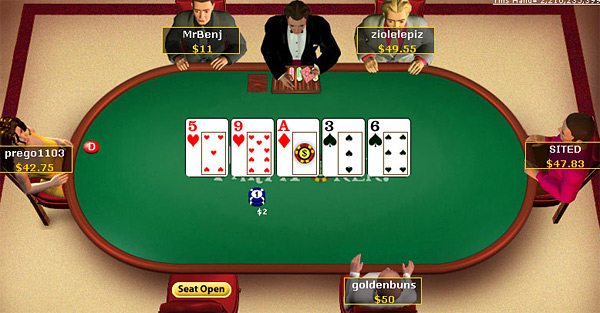
|  |  |  Technology News Technology News  
Online Poker Study: The More Hands You Win, the More Money You Lose
 Cornell University Cornell University
go to original
January 15, 2010


| | In online poker, a multibillion dollar industry, the biggest opponent for many players may be themselves. |  |
Ithaca, N.Y. — A new Cornell study of online poker seems counterintuitive: The more hands players win, the less money they're likely to collect – especially when it comes to novice players.

The likely reason, said Cornell sociology doctoral student Kyle Siler, whose study analyzed 27 million online poker hands, is that the multiple wins are likely for small stakes, and the more you play, the more likely you will eventually be walloped by occasional – but significant – losses.

This finding, Siler said, "coincides with observations in behavioral economics that people overweigh their frequent small gains vis-à-vis occasional large losses, and vice versa." In other words, players feel positively reinforced by their streak of wins but have difficulty fully understanding how their occasional large losses offset their gains.

The study, which was published online in December in the Journal of Gambling Studies and will be published in a forthcoming print edition later this year, also found that for small-stakes players, small pairs (from twos to sevens) were actually more valuable than medium pairs (eights through jacks).

"This is because small pairs have a less ambiguous value, and medium pairs are better hands but have more ambiguous values that small-stakes players apparently have trouble understanding," said Siler, a long-time poker player himself.

Siler used the software PokerTracker to upload and analyze small-stakes, medium-stakes and high-stakes hands of No-Limit Texas Hold'em with six seats at the table. The game has simple rules and "any single hand can involve players risking their entire stack of chips," Siler said.

The research not only examined the "strategic demography" of poker at different levels of stakes and the various payoffs associated with different strategies at varying levels of play, but also "speaks to how humans handle risk and uncertainty," said Siler, whose look at online poker combines aspects of behavioral economics, economic sociology and social science theory. "Riskiness may be profitable, especially in higher-stakes games, but it also increases the variance and uncertainty in payoffs. Living one's life, calibrating multiple strategies and managing a bankroll is particularly challenging when enduring wild and erratic swings in short-term luck and results."

In online poker, a multibillion dollar industry, Siler concluded that the biggest opponent for many players may be themselves, "given the challenges of optimizing one's mindset and strategies, both in the card game and the meta-games of psychology, rationality and socio-economic arbitrage which hover beneath it," he said.

bpf2(at)cornell.edu
|

 |
|  |



